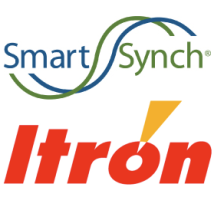
SmartSynch, which struck a deal with AT&T last year to use its public networks for Smart Grid applications, argues that public is the way to go because those networks are faster, better maintained, broadly available, and less expensive to operate. Its opponents, including Trilliant and Silver Spring Networks, counter that private networks, which they provide, are more secure and customizable for utilities’ needs. There’s no clear winner yet — it’s essentially a race to see who can land deals with the most utilities.
[aditude-amp id="flyingcarpet" targeting='{"env":"staging","page_type":"article","post_id":171351,"post_type":"story","post_chan":"none","tags":null,"ai":false,"category":"none","all_categories":"business,enterprise,","session":"A"}']By teaming up with SmartSynch, Itron is getting access to use a range of public networks, including general packet radio service (GPRS). It will integrate SmartSynch’s communications modules into its OpenWay smart meters to transmit energy consumption data between homes, businesses and utilities, and to run demand-response programs, redistributing energy between buildings when peak demand gets too high and threatens to destablize the grid.
The combined SmartSynch-Itron technology will be deployed first by DTE Energy, a utility operating in the Detroit-Metro area rolling out 2.6 million smart electricity meters and 700,000 smart natural gas meters. Eventually, the same integration could be used to facilitate communication between appliances (refrigerators, clothes dryers and more) and meters.
AI Weekly
The must-read newsletter for AI and Big Data industry written by Khari Johnson, Kyle Wiggers, and Seth Colaner.
Included with VentureBeat Insider and VentureBeat VIP memberships.
This is the second such deal Itron has announced this week. Earlier, it announced it is joining forces with Tropos Networks, which will allow Itron to work hand-in-hand with utilities to use privately-owned broadband networks for Smart Grid applications. Tropos emphasizes grid and data security.
So, clearly, Itron is playing on both sides of the fence — offering public network access where it’s most needed, namely in areas lacking local area networks for energy data transmission, as well as private networks for utilities that are more concerned about security and privacy.
But stay tuned. Because if Silver Spring Systems ends up going public, as many analysts predict it will — particularly after the company tapped several underwriters last month — its preference for private wireless networks could take the market in that direction.
VentureBeat's mission is to be a digital town square for technical decision-makers to gain knowledge about transformative enterprise technology and transact. Learn More
